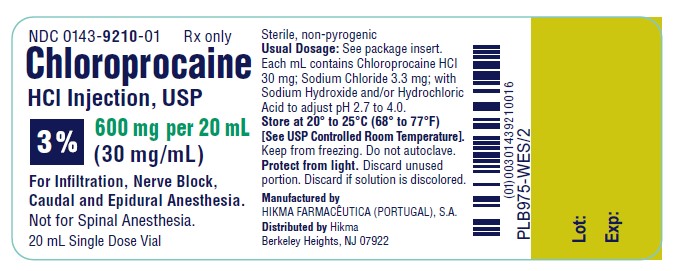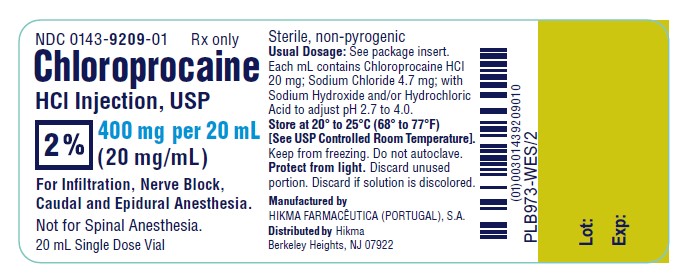
Chloroprocaine Hydrochloride Injection while Breastfeeding
What is Chloroprocaine Hydrochloride Injection used for?
What are the risk associated with Chloroprocaine Hydrochloride Injection usage while breastfeeding? What precautions shall I take while using it in breastfeeding?
Nursing Mothers It is not known whether this drug is excreted in human milk. Because many drugs are excreted in human milk, caution should be exercised when chloroprocaine is administered to a nursing woman.
Chloroprocaine Hydrochloride Injection Breastfeeding Analsys
Chloroprocaine hydrochloride while Breastfeeding
CAS Number: 133-16-4
No information is available on the use of chloroprocaine during breastfeeding. Based on the low excretion of other local anesthetics into breastmilk and the extremely short half-life of chloroprocaine, it is unlikely to adversely affect the breastfed infant. However, an alternate drug may be preferred, especially while nursing a newborn or preterm infant.

What should I do if already breastfed my kid after using Chloroprocaine Hydrochloride Injection?
We are not completely sure about safety of Chloroprocaine Hydrochloride Injection in breastfeeding. We would suggest you to contact your doctor or health care provider and explain your situation with Chloroprocaine Hydrochloride Injection. If you observe anything abnormal with your baby please call 911 or contact emergency services in your area.
I am nursing mother and my doctor has suggested me to use Chloroprocaine Hydrochloride Injection, is it safe?
If your doctor considers Chloroprocaine Hydrochloride Injection safe enough to prescribe for you that means its benefits outweigh its known risks.
If I am using Chloroprocaine Hydrochloride Injection, will my baby need extra monitoring?
Not Sure, Please check with your doctor or lactation consultant.
Who can I talk to if I have questions about usage of Chloroprocaine Hydrochloride Injection in breastfeeding?
US
National Womens Health and Breastfeeding Helpline: 800-994-9662 (TDD 888-220-5446) 9 a.m. and 6 p.m. ET, Monday through Friday
UK
National Breastfeeding Helpline: 0300-100-0212 9.30am to 9.30pm, daily
Association of Breastfeeding Mothers: 0300-330-5453
La Leche League: 0345-120-2918
The Breastfeeding Network supporter line in Bengali and Sylheti: 0300-456-2421
National Childbirth Trust (NCT): 0300-330-0700
Australia
National Breastfeeding Helpline: 1800-686-268 24 hours a day, 7 days a week
Canada
Telehealth Ontario for breastfeeding: 1-866-797-0000 24 hours a day, 7 days a week
